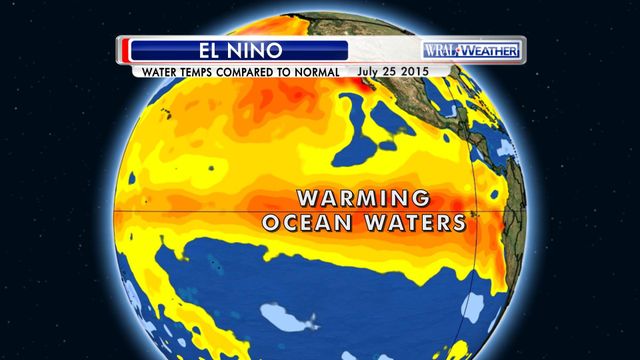Two factors could limit 2015 tropical storms
Many of you have heard that this hurricane season is likely to be "below normal." So we can rest easy right? Not necessarily.
Posted — UpdatedRemember Hurricane Andrew in 1992? It was one of only three Category 5 hurricanes to ever strike the United States. Andrew occurred in a "below normal" season. For those in Homestead, Fla., that "below normal" season was quite enough.
Still, we seem to have a fascination with trying to predict the total number of storms that will develop, even if we have absolutely no idea how strong they will be, and more importantly, where they are headed.
Having said all of that, there are two major inhibiting factors relating to tropical cyclone development in the Atlantic basin this year.
First, El Nino, where the easterly trade winds in the Pacific weaken and allow much warmer water to move eastward along the equator toward South America. This in turn generates thunderstorm activity which then releases heat into the atmosphere and changes the global circulation pattern. One of these changes increases the upper level westerly winds across the tropical portion of the Atlantic Ocean, thus shearing or tearing apart most potential tropical systems. In these types of seasons, many times the greatest threat is from systems that develop just off the Gulf coast or the southeast coast of the U.S.
The other negative factor is the influx of Saharan dust coming off the African continent. In large concentrations, this dust can reflect incoming solar radiation and prevent warming of the ocean surface below.
So there may not be many storms this year, but it only takes one. Our preparation for each and every hurricane season should be the same. Seasonal forecasts are interesting, but hardly useful to the general public.
Copyright 2024 by Capitol Broadcasting Company. All rights reserved. This material may not be published, broadcast, rewritten or redistributed.






